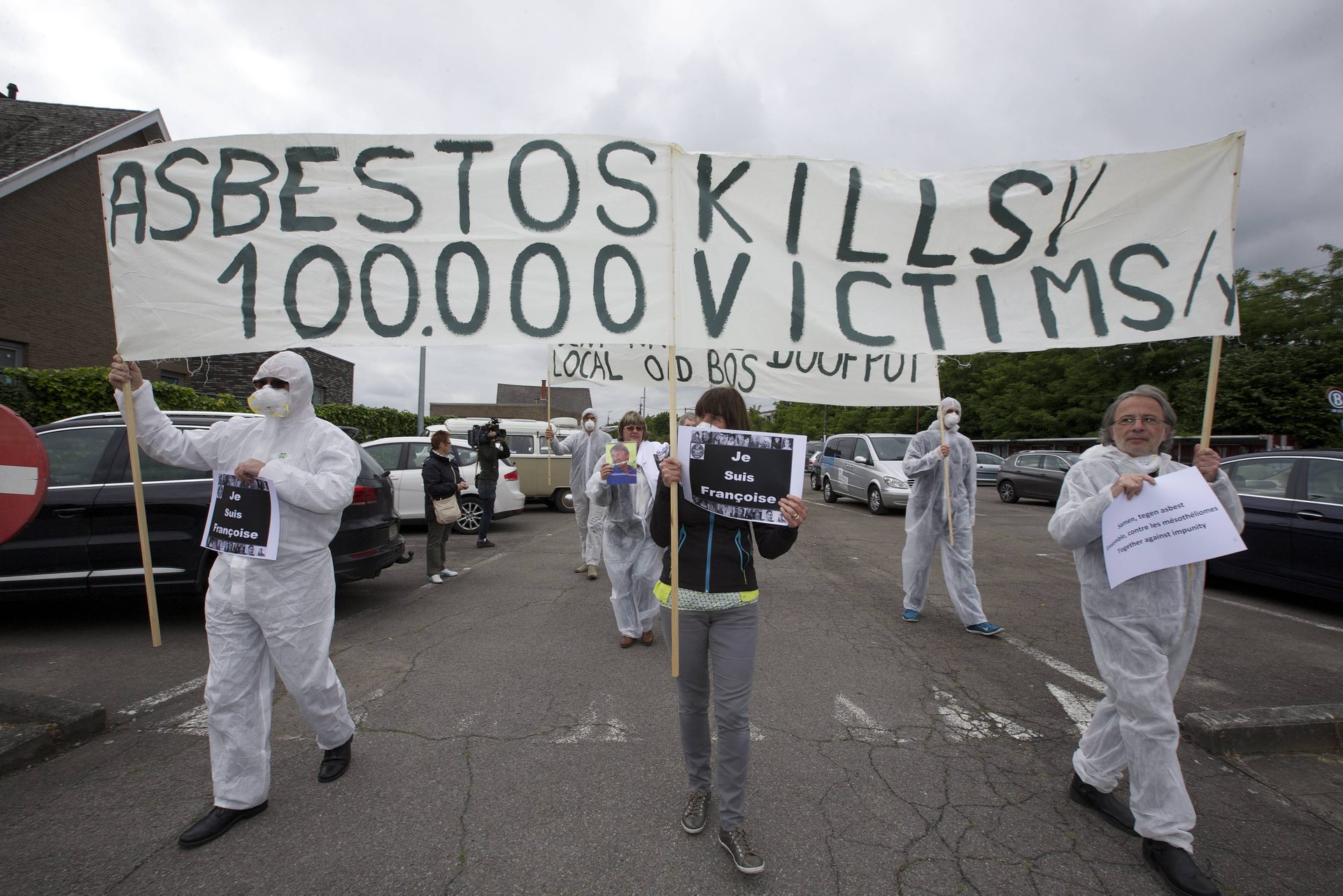The Écolo-Groen group in the Chamber announced on Monday that it has a bill to grant better protection to asbestos victims.
While it has been illegal to manufacture, trade or reuse materials containing asbestos in Belgium for almost 30 years, asbestos-containing materials are still present in many homes built in the 1960s and 1970s. Belgium was one of the largest per capita consumers of asbestos. Globally, asbestos continues to kill 255,000 people a year to this day.
"Today, it is not possible for victims who obtain compensation to also file a complaint with the court against the companies responsible. With this bill, we want to put an end to this injustice," explained Green MP Kristof Calvo, one of the text's authors.
Victims who have been exposed to asbestos in the workplace can claim compensation from the Federal Agency for Occupational Risks (Fedris). In other cases (i.e. with no occupational connection), they can apply to the Asbestos Fund. However, if they do so, it remains very difficult for them to take legal action against those responsible for the asbestos pollution.

People protesting near the entrance of the plant of asbestos manufacturer Eternit in Kapelle-op-den-Bos. Credit: Belga / Nicolas Maeterlinck
With this bill, Écolo and Groen want to offer asbestos victims more legal options. The parties want to achieve this by introducing the French legal principle of "inexcusable error," Calvo explained in a statement.
In French law, "inexcusable error" is defined as an exceptionally serious error deriving from a voluntary act or omission, from the awareness of the danger that its perpetrator must have had, from the absence of any justifying cause and distinguished by the lack of an intentional element.
The two ecologist parties also want to give better support to asbestos victims. For example, they are proposing that part of the compensation should be paid in the form of a lump sum instead of recurring interest.
Related News
- Forgotten killer: Belgian asbestos victims seek real sense of justice
- 40% of houses in Flanders likely contain asbestos
Moreover, Écolo and Groen want companies responsible for asbestos exposure to contribute more to the Asbestos Fund (1.01% of their company's payroll instead of 0.01%). At present, this is partly financed by contributions from all employers, including those not responsible for asbestos.
"It is unfair that companies and employers that played no part in asbestos pollution should be forced to contribute as much as the actual polluters. According to the 'polluter-pays principle', we want those responsible for asbestos pollution to also contribute more to asbestos pollution. This is nothing more than logical," Calvo stressed.

